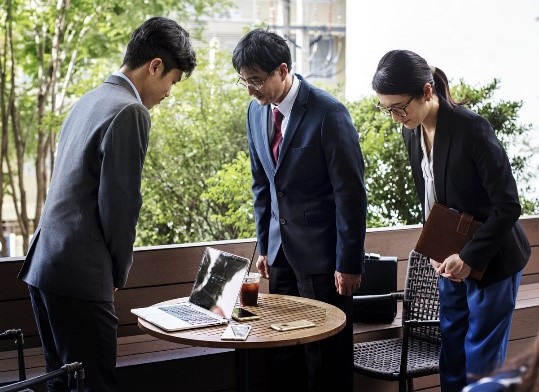
(opinion article)
Japanese work etiquette is an important part of the country’s culture, which ensures harmony and efficiency in work processes. Japanese companies are known for their high productivity and quality of work, which is largely due to strict rules and traditions of work ethics.
One of the key features of Japanese work etiquette is the principle of “Wa” (和), which means harmony. In the work environment, this manifests itself in the importance of teamwork and conflict avoidance. Japanese workers strive to maintain harmonious relations with colleagues, and this affects all aspects of their behavior at work. It is important to show respect for the opinions and suggestions of others, even if they differ from your own.
An important role in Japanese work ethics is played by “Keigo” (敬語) — a system of polite forms of speech. Using the correct level of politeness in conversations with colleagues and superiors is a must. For example, seniors by position or age are addressed using more polite formulas, which demonstrates respect and reverence.
Another important tradition is “Honne” and “Tatemae”. “Honne” means true feelings and thoughts, while “Tatemae” is an outward expression that conforms to social expectations. In the work environment, Japanese people often hide their true feelings and show “Tatemae” to maintain harmony in the team and avoid conflicts. “Nemawashi” (根回し) is another important component of Japanese work etiquette. This term means informal preparation before making important decisions. In Japan, it is important to discuss plans and proposals with all stakeholders in advance to reach a consensus. This helps avoid misunderstandings and ensures support for initiatives.
“Zangyō” (残業) — the concept of overtime work, deserves special attention. In Japan, it is customary to stay at work longer than scheduled to show your commitment to the company and the desire to do more for the team. Although this practice can be stressful and tiring, it is an important part of Japanese work culture.
Finally, it is worth mentioning “Omotenashi” (おもてなし) — Japanese hospitality and service. This principle implies that employees should always put the interests of customers and colleagues first, offering the highest level of service and assistance.
Japanese work etiquette is a complex system of rules and traditions that ensures efficient work and harmonious relationships in the team. Adherence to these principles contributes to the creation of a positive work environment where each employee feels valued and important.


























































Залишити відповідь